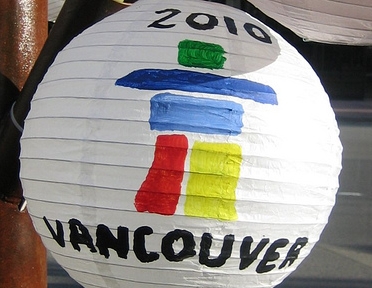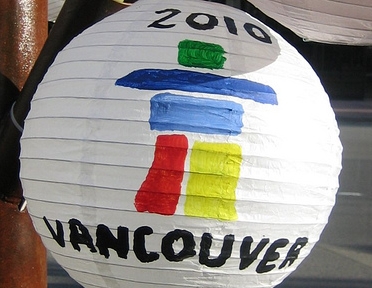 Photo courtesy BinoCanada via FlickrFor all the efforts to minimize the impact of the Olympics, one big solution never gets taken seriously. So much of the environmental and financial cost of the games comes from cities trying to build facilities that suit both a massive, two-week influx of athletes and spectators and also the long-term needs of locals. So you get things like Montreal’s Olympic Stadium, built for the 1976 summer games and not paid off in full until 2006. Or the “spookily quiet, deserted” Olympic village Tom Philpott saw in Turin, Italy, two years after the games there.
Photo courtesy BinoCanada via FlickrFor all the efforts to minimize the impact of the Olympics, one big solution never gets taken seriously. So much of the environmental and financial cost of the games comes from cities trying to build facilities that suit both a massive, two-week influx of athletes and spectators and also the long-term needs of locals. So you get things like Montreal’s Olympic Stadium, built for the 1976 summer games and not paid off in full until 2006. Or the “spookily quiet, deserted” Olympic village Tom Philpott saw in Turin, Italy, two years after the games there.
The solution: Hold the Olympics in the same location every time, one spot for the summer games and one for the winter. Since the greatest concentration of athletes comes from Europe, putting the summer games in, say, Athens and the winter games somewhere in the Alps would minimize jet travel, which accounts for fully half the carbon impact of the Vancouver games.
This idea has been floated before and explored at length elsewhere, and it’s worth considering. You’d no longer have local organizers trying to defensively explain how massive, fast-track infrastructure projects are really in an area’s long-term interest. Canadian officials say the Sea-to-Sky Highway expansion from Vancouver to Whistler was needed even without the Olympics. If that’s true, then they shouldn’t have needed the 2010 games to provide impetus for it.
A permanent Olympics home is unlikely to happen, of course, because these things aren’t driven by rationality and a desire to minimize environmental impacts. They’ve got much more to do with the International Olympic Committee’s desire for geographic equity and with host nations’ pride and ambition. As each opening ceremony makes clear, the Olympics wouldn’t be the same without this element. And it’s unlikely the Greeks or Italians or whoever would muster the same level of excitement every four years that Canadians are contributing now.
Still, the three official “pillars” of the International Olympic Committee are sport, culture, and environment. If organizers were serious about the third pillar, they’d give the traveling show a permanent home.


